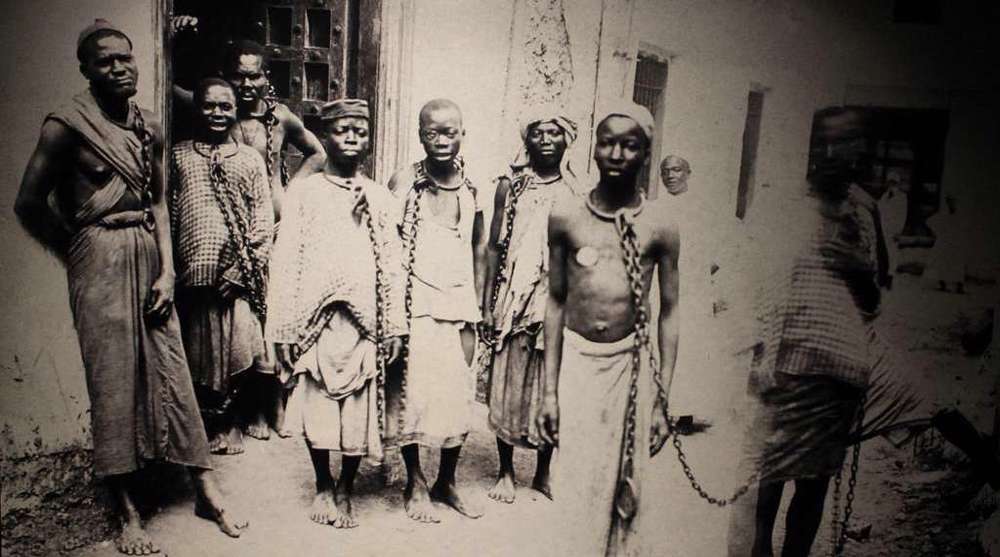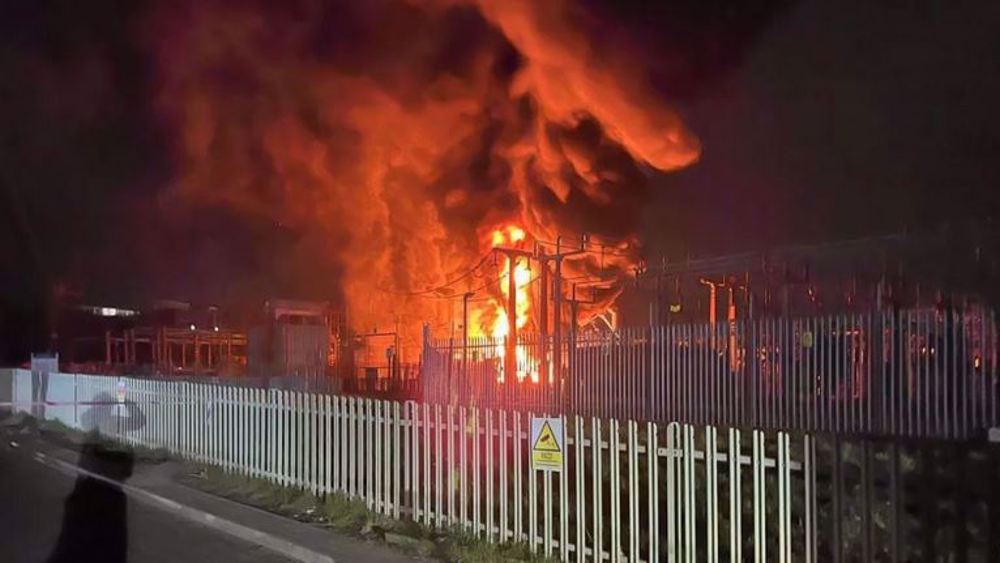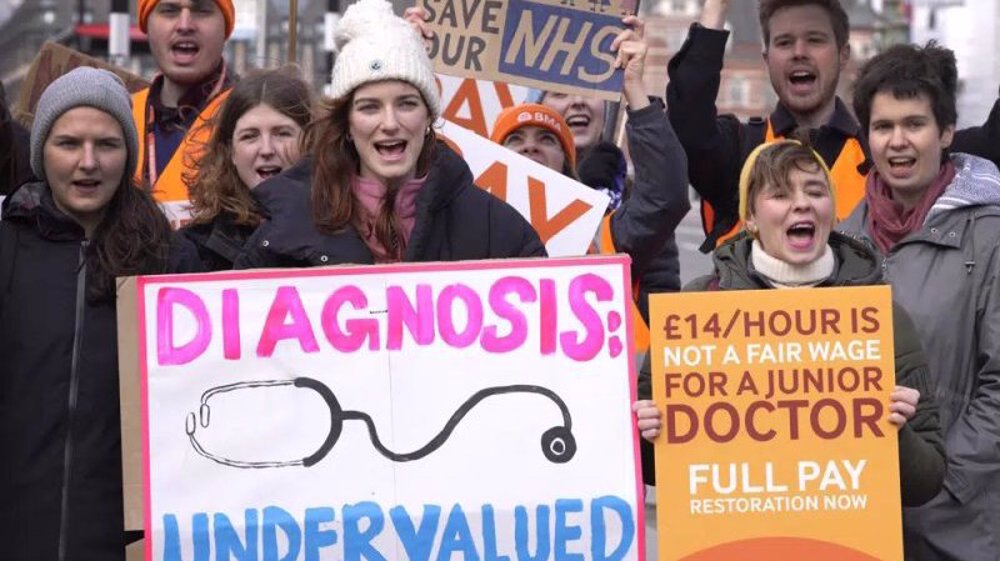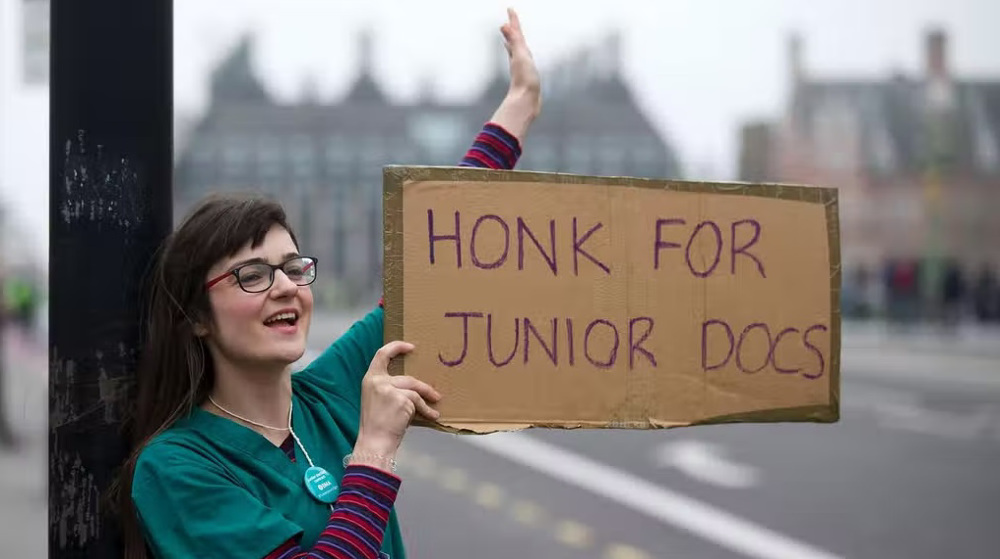Critically ill patients in UK ‘will inevitably die’ due to doctors’ strike: Experts
Critically-ill patients in the United Kingdom will "inevitably die" as hospitals will be forced to cancel operations due to an upcoming strike by junior doctors, leading British heart experts have warned.
Junior doctor members will come out on a massive strike for four straight days (96 hours), beginning on April 11 in a bitter dispute over pay, the British Medical Association (BMA) confirmed.
The BMA’s more than 36,000 members are resolute to strike because they feel “overworked and undervalued."
On Wednesday, three leading heart experts called on BMA to exempt staff working on critical care units in England, saying that NHS heart units would have too few medics available during the four-day walkout to run normal operating lists.
They warned that fatalities would be inevitable among people with serious heart problems and whose unstable health meant they were “a ticking timebomb” and in desperate need of surgery as soon as possible.
“One of our trust’s core values is to put patients first and so I feel it is only right to warn that some patients will inevitably die due to the cumulative impact of delaying hundreds who are on the waiting list,” said Dr. Richard Grocott-Mason, a cardiologist and chief executive of the Royal Brompton and Harefield hospitals.
He also stressed that postponing surgery for the P2 group, whose fragile health means they need surgery within 28 days, would result in harm, adding that for some, this might be life-changing, and for others, may mean premature death.
Another warning came from Dr. Mark Mason, a cardiologist who is the medical director for heart, lung and critical care at the Guy’s and St Thomas’ NHS trust that runs all three hospitals.
“It’s a cliché but these [P2] patients really are sat on a ticking timebomb,” he said, stressing that the risk of these patients suffering a cardiac arrest rose, the longer they had to wait for surgery.
“If they do, it’s then a question of how lucky they are to have a bystander perform CPR on them, and how quickly the ambulance gets to them. These patients sat waiting for an unpredictable and potentially fatal cardiac event to happen,” Mason said.
The consequences of the next week's walkout by junior doctors on seriously-ill patients prompted Grocott-Mason, Mason and their colleague Mario Petrou, the Brompton and Harefield hospitals’ clinical director for cardiovascular services, to speak out to raise concerns.
These concerns, widely shared by senior doctors and NHS doctors, are about patients with a range of serious health problems, including cancer.
The stoppage, considered to be the most significant industrial action called by any health union so far, is expected to force National Health Service (NHS) to reschedule as many as 250,000 appointments.
Junior doctors in England staged their first walkout last month, demanding a 35 percent pay rise. The three-day strike, however, led to 175,000 outpatient appointments and operations being canceled.
The strike next week follows strikes in recent months by nurses and ambulance staff in Britain.
As a far-fetched solution to the dispute, the government has introduced strike legislation in order to contain industrial actions in the country's key sectors, forcing the staff to maintain a basic level of service during strike time or face dismissal.

Rights groups urge UK prime minister to hold back on anti-migrant rhetoric

Report: Most Britons ignorant about scale of UK slavery

London’s Heathrow announces shutdown due to ‘significant power outage’
Iran, US conclude negotiations in Oman, agree to continue next week
Iran and US hold indirect talks in Oman
Iraq hopes indirect Iran-US talks lead to regional stability
US rights advocates file lawsuit to halt Trump’s sanctions on ICC prosecutor
Israel waging psychological sabotage campaign against Oman talks: Report
EU youth mental health crisis
VIDEO | New York students protest student deportations
VIDEO | Press TV's News Headlines








 This makes it easy to access the Press TV website
This makes it easy to access the Press TV website